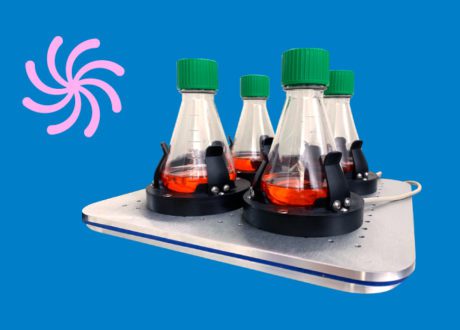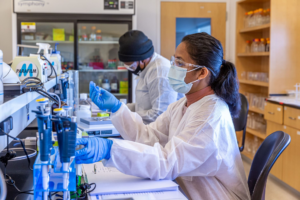
Changing Careers – Leaving The Medical Device Field To Work In A Biotech Startup
Why would any sane person leave the bleeding-edge medical device space after 25 years for a biotech startup? The medical device world allows you to represent products where you see the benefits to patients immediately. We had the privilege of wearing scrubs and offering our expertise in the procedure room. I was fortunate to work with some of the greatest cardiovascular minds in the world. Having built that trust and credibility is something I’ll never forget. So why move along?
Things to consider when changing industries
In 2011, I began to think about my skill set. I had tremendous success as a salesperson, sales trainer, and Regional Sales Manager. But I knew I had more to offer and wanted to broaden my skills. A substantial part of my thinking revolved around these questions:
• What would I do if I had to leave the industry?
• What if Reimbursement disappeared?
• Could I even find a job in a different industry?
I realized pretty quickly that I needed to learn transferable skills and that I needed to get comfortable being uncomfortable. I spent the next 8 years working to fill those gaps. And I believe these are the two most important action items when considering switching industries.
Get comfortable being uncomfortable
A mentor of mine had shared that the only way to truly learn new skills was to be willing to dive into the deep end of the pool. While I instinctively knew this, it took a bit to take the plunge! I finally convinced myself that I could “always go back and do what I was doing before” if I “failed”. One of the really important steps I took was to make sure I had trusted mentors and colleagues who I could lean on. That didn’t mean they held me up in the pool. Rather, they would offer advice from a safe distance. Thus, I was the one truly learning. Ironically, not only are the skills like project management, change management, and prioritization transferable skills but so is survival in the deep end of the pool! I became much more confident that I could go to another project, another specialty, or another industry and “figure it out”.
It’s more than humbling to no longer be a subject matter expert after 25 years, but it’s also invigorating to learn about the amazing space of biotech. And I get to bring some interesting perspectives along as well!
How Are These Industries Similar?
I’ve been pleasantly surprised to see two areas where the medical device and biotech spaces are similar.
The first similarity I notice is that both are on a path to deliver personalized medicine. Though the paths are a bit different, the goal is the same: Deliver the custom care that the patient needs.
In medtech, there are numerous efforts to leverage data, machine learning, AI, and other advancements that point us toward the right device for the patient. An example of this is any of the drug-coated technologies in the cardiovascular space. Today, we have multiple choices and can simply choose the one that appears to be most efficacious. The doctors would like to be able to know which drug will be more effective on each patient. The biotech space is endeavoring to achieve the same thing. I can see a time when a specimen/swab is taken from the patient, run through an analyzer from the biotech world, and devices are then customized on-site.
A second similarity I see is that there is a common enemy. One of the areas I covered in the cardiovascular space was the arterial circulation in the legs. Many of the companies and physicians have been fighting amputation for 25+ years. The amputation rate is still alarmingly high, usually because patients are not aware that vascular options exist. In most cases, we are simply treating what shows up in the office or procedure table. And many of those patients present with end-stage renal disease (ESRD). I wasn’t aware that we might be able to fight the amputation problem of ESRD from the other side! I’ve already seen biotech companies that are making artificial kidneys. And they are not that far from commercialization. I can’t even begin to think how that can help the amputation pandemic!
How Are These Industries Different?
The first difference I noticed immediately is that I cannot see the direct result of the product I represent. In the medical device industry, I could see a patient’s coronary artery or leg artery being opened during the procedure. The physician, the staff, and the company reps can be confident that a tangible result has been reached. From what I’ve seen in biotech, we are part of a much larger solution, enabling other companies or researchers to push forward the next great advancement. While the product utilization is certainly different, I take great pride in the fact that we are still going to be helping a patient, but perhaps further down the line than the instant gratification from the medtech space.
A second difference is the maturity of the space. Medical devices in the cardiovascular space have made massive leaps from the 1990s to the mid-2010s. While there are always improvements to realize, they won’t be as large as those from the last 25 years. Biotech appears to be evolving very quickly but at the front end of the massive growth curve.
My Thoughts On The Future Of The Biotech industry
I’m extremely excited for the future of the Biotech industry. There is great potential to change the way patient care is formulated and rendered. It seems that each week we’re on a call with a company whose products and mission are more exciting and unique than the last one. I’m proud that we are just starting to see how we can help these great innovators find a better way to scale their experiments and enhance their yields and reproducibility of data.



